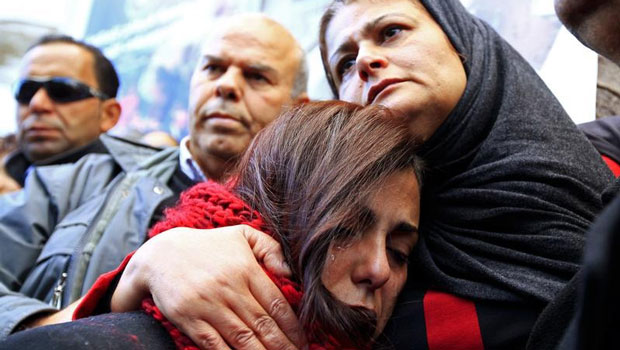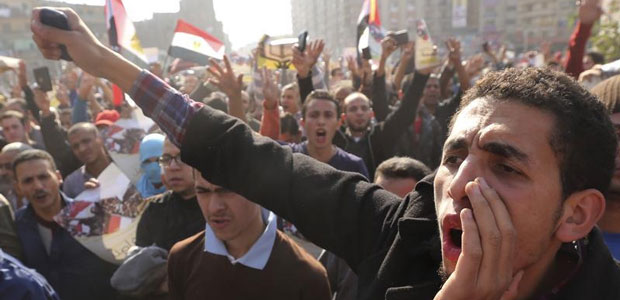Libyan journalist abducted, threatened
An unidentified group of armed men abducted Aboubaker Al-Bizanti, a producer for Art Media Solutions (AMS), which produces local news coverage for the broadcaster Libya Al-Ahrar TV and other television stations, the night of August 7, 2016, and released him the following day, according to the journalist, his colleagues, and Libyan news websites.

Photographer arrested while covering a protest in Libya
Washington, August 2, 2016–Libyan authorities should immediately charge or release photographer and cameraman Saliem Alshebl, the Committee to Protect Journalists said today. Alshebl, who works for the Libya satellite channel, which is allied with the National Accord government, was arrested July 29 while covering an anti-government protest at Tripoli’s Martyrs’ Square, according to his employer…

Abdelqadir Fassouk second Libyan photojournalist to be killed in a month
Washington, July 22, 2016–The Committee to Protect Journalists today condemned the killing of Arraed television correspondent and prominent Libyan photojournalist Abdelqadir Fassouk, who was shot yesterday while covering clashes between government-allied forces and the militant group Islamic State, according to his news outlet.
Infographic: Islamic State’s assault on the press
When Mosul fell to Islamic State on June, 10, 2014, it sparked one of the biggest attacks on press freedom in recent times. Newspapers were shuttered, TV channels were ransacked, radio stations disappeared from the airwaves, and dozens of journalists vanished. Within days, the militants had a monopoly on information output.
From High Profile to Exile
Heba Alshibani did not set out to become a journalist. She had expected to become an academic, as many members of her Libyan family had before the February 2011 uprising that led to the overthrow of Muammar Qaddafi. But when the violence did not abate after Qaddafi’s overthrow, Alshibani witnessed events that she felt compelled…
CPJ concerned for safety of photojournalist missing in Libya
New York, November 17–The Committee to Protect Journalists is concerned for the safety of Mohamed Neili, a Libyan photojournalist missing since October 29. Neili, who works for the Chinese state-run Xinhuanews agency, disappeared after leaving his house in southern Tripoli, according to media outlets and a local press freedom center.
Journalists and international humanitarian law
One of the most important protections that journalists operating in a conflict zone are afforded is their status as civilians. This means they cannot be deliberately targeted, and cannot be taken prisoner by the warring factions. Under the Geneva Conventions journalists are only entitled to this protection “provided that they take no action adversely affecting…

Lack of media coverage compounds violence in Libya
Near the end of August 2014, Egypt and the United Arab Emirates launched airstrikes against what were characterized as Islamist-allied militias fighting near Tripoli, Libya. Or maybe they didn’t. The New York Times broke the story on August 25, 2014; Egypt denied it, the UAE didn’t comment, and U.S. officials made seemingly conflicting statements.

Treating the Internet as the enemy in the Middle East
The snow and freezing temperatures that struck Saudi Arabia unexpectedly in December 2013 were newsworthy in a desert kingdom better known for its extreme heat. But the fact that the ensuing power outages at a regional prison left prisoners without power or heat for nearly a week was apparently off-limits to reporters.
